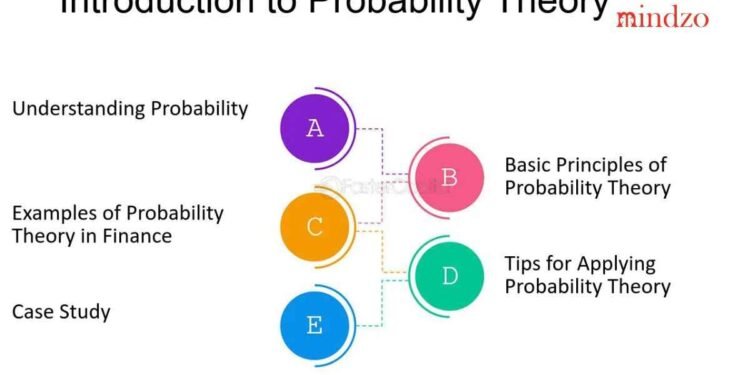1. What is Probability?
The Science Behind Probability and Luck: Understanding Chance and Decision-Making Probability is the measure of how likely an event is to occur. It ranges from 0 (impossible) to 1 (certain). The simplest example is flipping a coin: there’s a 50% chance of landing on heads and 50% for tails.
2. Understanding Luck: Myth or Reality?
Some people believe luck is a supernatural force, while others see it as a combination of probability and mindset. Scientific studies suggest that “lucky” people often create their luck by staying open to new opportunities and taking calculated risks.
3. How Probability Shapes Everyday Life
From deciding what route to take to work to predicting stock market trends, probability influences our daily choices. For example, insurance companies use probability to determine policy rates.
4. The Role of Randomness in Decision-Making
Our brains are wired to look for patterns, but randomness plays a significant role in decision-making. A classic example is the stock market, where chance factors heavily influence outcomes.
5. Gambler’s Fallacy: Why We Misunderstand Probability
The Gambler’s Fallacy is the belief that past outcomes affect future probabilities. For instance, if a coin lands on heads five times in a row, many believe tails is “due.” In reality, each flip is independent.
6. The Science Behind Winning the Lottery
Winning the lottery is purely a game of probability. With millions of combinations, the odds of hitting the jackpot are incredibly low, yet people continue to play due to cognitive biases and hope.
7. How Casinos Use Probability Against You
Casinos thrive on probability, ensuring that the odds always favor the house. Games like roulette, blackjack, and slot machines are designed to keep players engaged while maintaining a profit margin.
8. Can You Increase Your Luck?
While you can’t change pure chance, you can improve your odds of success by making informed decisions, staying optimistic, and embracing opportunities—practices often associated with “luck.”
9. Probability in Business and Finance
Businesses use probability to assess risks, forecast market trends, and make strategic decisions. Financial models rely heavily on probability to predict stock movements and economic shifts.
10. Decision-Making: The Influence of Chance
Many of our life choices are influenced by probability. Understanding how chance impacts our decisions can help us make better, more rational choices.
11. The Monty Hall Problem: A Probability Puzzle
This famous probability puzzle involves choosing between three doors, with one hiding a prize. Mathematically, switching doors after a non-prize door is revealed increases your chances of winning.
12. The Role of Probability in Weather Forecasting
Meteorologists use probability models to predict weather conditions. A “30% chance of rain” means that, under similar conditions, rain occurs 30% of the time.
13. How Understanding Probability Helps in Risk Assessment
From medical diagnoses to financial investments, probability helps assess risks and make better choices, minimizing uncertainty in various fields.
14. Luck vs. Skill: What Determines Success?
While skill is crucial, luck plays a bigger role than most people admit. From job interviews to sports, a mix of skill and randomness often decides outcomes.
15. Conclusion: Making Better Choices with Probability
The Science Behind Probability and Luck: Understanding Chance and Decision-Making By understanding probability and luck, we can make smarter decisions and avoid common pitfalls. While luck is unpredictable, informed choices can improve our chances of success.
FAQs
1. Is luck real, or is it just probability? Luck is often a perception rather than a measurable force. In reality, probability dictates outcomes, but mindset and preparedness influence “luck.”
2. How do casinos use probability against players? Casinos design games where the odds always slightly favor the house, ensuring long-term profitability despite short-term wins for players.
3. Can understanding probability help in making better decisions? Yes! Probability helps assess risks, make rational choices, and avoid cognitive biases that can lead to poor decision-making.
4. What is the Monty Hall Problem, and why does switching doors increase the chances of winning? In the Monty Hall Problem, switching doors increases your chances of winning from 33% to 66% because the initial choice had a lower probability of being correct.
5. Can you train yourself to be luckier? While you can’t change probability, adopting a positive mindset, taking more opportunities, and improving decision-making skills can make you feel “luckier.”




















